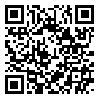BibTeX | RIS | EndNote | Medlars | ProCite | Reference Manager | RefWorks
Send citation to:
URL: http://jcp.khu.ac.ir/article-1-2919-en.html
Abstract
The aim of this study was to investigate the role of working memory capacity and errorless and errorful practice on the learning the relative timing was a motor task. 50 Participants based on were selected aged 22±4 years as accessible samples randomly assigned to one of four groups (errorless low working memory capacity, errorful low working memory capacity, errorless high working memory, errorful high working memory capacity). This study was carried out in four phases. First phase (pre-test), subjects participated in 10 trials without knowledge of results (KR) on four-segment timing task. In the acquisition(ACQ) phase, a timing task with three different difficulty levels (simple, moderate, and difficult) was practiced in three sessions of 45 trials with feedback by experimental groups, except for control. In the 10-minute and 24 hour retention and 10- minute transfer tests, errorless group with low working memory capacity and errorful group with high working memory capacity had better performance than other groups. In the dual task tests (24-hour transfer) errorless group with low working memory capacity in the relative timing (intermediate times, RMSE) had better performance than other groups. These results indicate that the efficiency and efficacy of errorless and errorful practice interact with psychological indicators such as working memory capacity. These results suggest that implicit motor learning (errorless) may be beneficial for children with working memory capacity. Individual with high working memory capacity might benefit from learning explicitly (errorful). Results in dual task conditions support the implicit learning and reinvestment theories.
Received: 2018/03/31 | Accepted: 2018/09/18 | Published: 2018/09/18
| Rights and permissions | |
 |
This work is licensed under a Creative Commons Attribution-NonCommercial 4.0 International License. |






